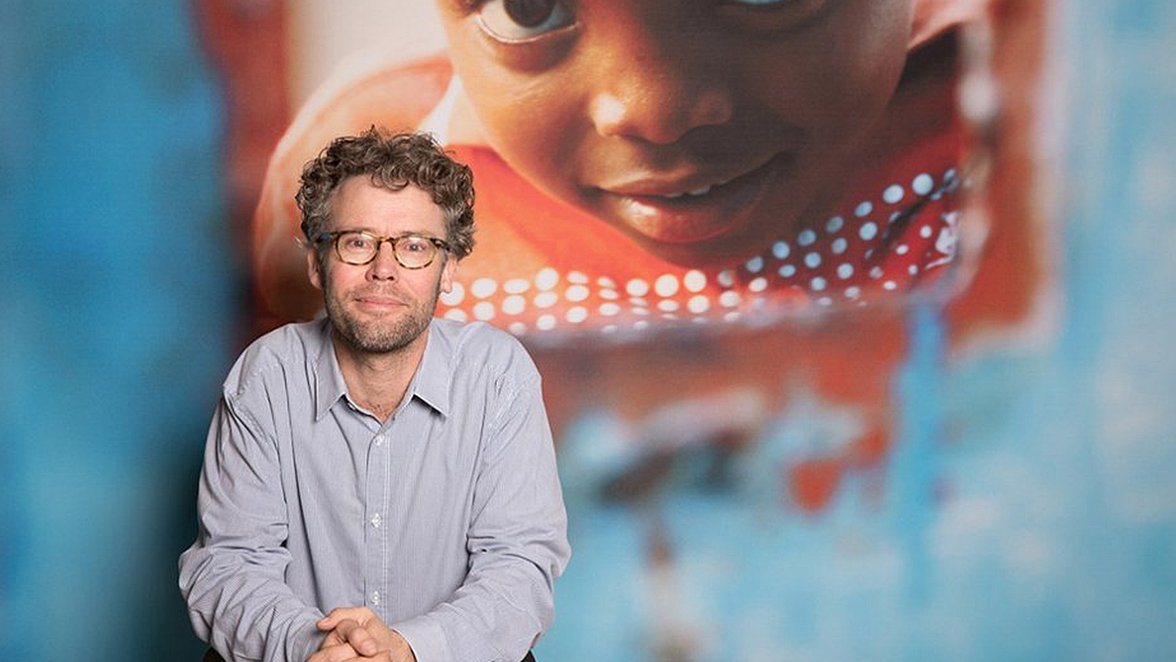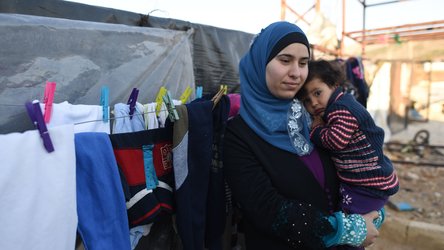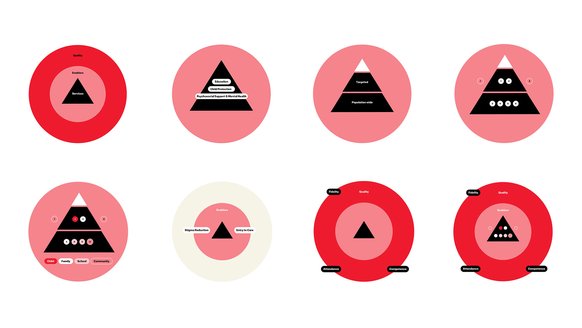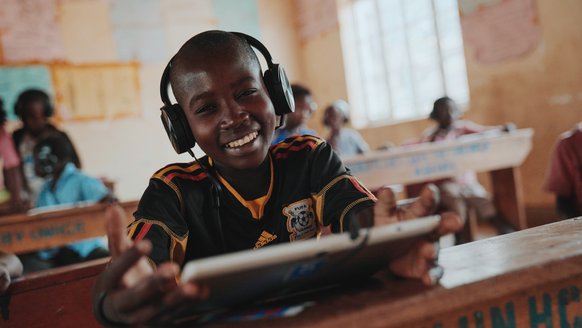Using Science to Reduce the Psychological Suffering of Children in War
Jan. 10, 2022

In fact, using science to dramatically reshape humanitarian aid has been driving Jordans’ work from the beginning. As Director of Research and Development at War Child, as well as an experienced child psychologist, he first entered the sector in 1999 in Nepal, where he founded TPO Nepal. Here he harnessed the power of research to develop and evaluate interventions designed to improve the mental health of people living amidst poverty and adversity. That’s also where he first crossed paths with the Institute of Psychiatry, Psychology & Neuroscience at King’s College London. Some 23 years later - with the number of children living in active war zones at record high - his work has never been more important.
You’ve dedicated your career to improving the mental health of children. Why?
“The global mental health crisis - particularly among young people - is real and escalating. Yet, currently, less than 1% of total developmental assistance for healthcare goes towards mental health and psychosocial support.
My question is: how can we provide for basic needs such as food and water while also reducing the psychological suffering of children in war zones?
A comprehensive system of care - consisting of a set of evidence-based interventions - needs to be provided, and that’s what the work of my colleagues and I sets out to do.”
And why science? Surely, children in war zones don’t have time to wait?
“It all comes back to that basic question: how do we know we’re doing good? By evaluating our interventions and drawing upon a strong base of evidence to prove these interventions work, we’re holding ourselves up to the highest standards. And we owe that to the children we support.
To answer your question - yes, many children in war zones need immediate psychological support - most don’t receive anything at all. But we do need to ensure that we get it right.”
Sounds like humanitarian aid 2.0. Is this an accurate description?
“I’m going to be humble on that one. I think it is a relatively new approach to humanitarian aid - and one that I believe in. However, there’s a large contingent of humanitarian workers who will argue that we don’t have time to invest in research.
My argument is that we need to know what works, how it works and how we can implement it effectively at scale while maintaining quality. Of course, that does not mean organisations such as War Child should sit and wait for the evidence to trickle in. But it does provide opportunities for optimizing and increasing the support that is being offered to children, their caregivers and their communities. By working together, we can reach more children in more places with tried and tested support - even with very limited resources.”
What do you hope to get out of your continued collaboration with King’s College London?
“Through my position at the Institute of Psychiatry, Psychology and Neuroscience, War Child can work together with other academics, especially in the field of mental health, to exchange knowledge and jointly conduct research in conflict-affected countries around the world.
I’ll give you an example…
Last year, the two organisations joined forces to conduct a randomized control trial, where we were able to demonstrate that our flagship caregiver support intervention had reduced stress levels among caregivers and consequently improved the parenting skills of Syrian refugees in Lebanon. In turn, improving the wellbeing of their children.
Another example - a War Child researcher is currently developing an intervention that sets out to reduce stigma among children in conflict settings. The Institute has a research group that is specialized in stigma so once again, we can work together and learn from each other.”

Caregivers living in war bear a heavy burden of stress - one shared with the children in their care
Caregiver Support InterventionYou mentioned that less than 1% of all humanitarian healthcare funding goes towards psychosocial support. Doesn’t it feel like you’re constantly hitting a brick wall?
“If you look at where mental health and psychosocial support stands globally today, in comparison to 20 years ago, it’s phenomenally different. It’s on the humanitarian and development agenda and is being considered in government policy. Methods that are developed in low-income countries are now being taken up and tested, even in high-income settings such as New York City in order to tackle month-long waiting lists.
What’s more - and the COVID-19 pandemic warrants a mention here - the taboo around mental health is fading. For the first time in history, people all over the world can relate.
I agree with you, it hasn’t translated into huge changes - in terms of the funding available for mental health services worldwide; especially in low resource settings - but there’s definitely a movement.”

